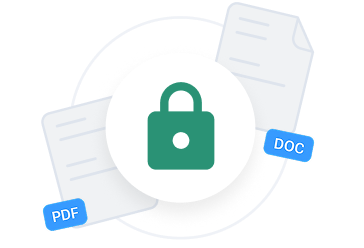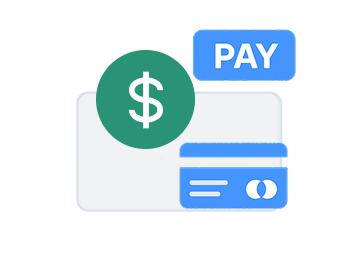Life insurance can be surprisingly affordable
Protect yourself and others with a policy that offers financial security in case of an accident.

How does life insurance work?
Life insurance is a contract between you and an insurance company. In exchange for regular payments (premiums), the insurer agrees to pay a tax-free lump sum (death benefit) to your beneficiaries if you pass away during the policy term.
This money can help your loved ones:
-
 Replace lost income
Replace lost income
-
 Fund a child’s education
Fund a child’s education
-
 Secure your business
Secure your business
-
 Pay off debt
Pay off debt
-
 Cover funeral and end-of-life expenses
Cover funeral and end-of-life expenses
There are different types of policies, but they all share one goal: providing financial security for those you care about most.
Try nowHow to get life insurance?
The process of securing life insurance is less complicated than most people imagine. It can be summed up in three steps:
Choose your policy
Review quotes on term and permanent policies and pick an option that best suits your goals and budget.

Apply for coverage
Fill out a questionnaire, complete a medical exam if required, and wait for the provider to review your application.

Big life events
Consider getting coverage when you get married, have children, buy a home, or take on long-term financial obligations.

At what age should you get life insurance?
The best time to buy life insurance is when you’re young and healthy, typically in your 20s or 30s. Why?
Lower premiums
Age and health heavily influence your rates. Younger applicants usually pay less.
Future-proof coverage
Buying early helps lock in coverage before health conditions develop.
Big life events
Consider getting coverage when you get married, have children, buy a home, or take on long-term financial obligations.
That said, it's never too late to get coverage, as many providers offer policies up to age 75 or older.
How much does life insurance cost?
Life insurance costs vary significantly depending on age, health, coverage amount, term length, lifestyle, and other factors. Our quote comparison tool incorporates all these variables to deliver precise quotes from national and local providers.
What are the main types of life insurance?
There are two primary types of life insurance: term and permanent. They are designed to accommodate different goals and budgets, and each has its distinct benefits.
Term Life Insurance
-
 Affordable, simple coverage
Affordable, simple coverage
-
 Covers for a set period (e.g., 10, 20, or 30 years)
Covers for a set period (e.g., 10, 20, or 30 years)
-
 No-Med Exam options available
No-Med Exam options available
-
 Great for young families and income replacement
Great for young families and income replacement
Whole Life Insurance
-
 Lifelong coverage
Lifelong coverage
-
 Builds cash value over time
Builds cash value over time
-
 Good for estate planning and long-term financial goals
Good for estate planning and long-term financial goals
-
 Higher premiums, but includes investment-like features
Higher premiums, but includes investment-like features
Other types:
Universal Life
Flexible premiums and death benefits; also builds cash value.
Final Expense Insurance
Smaller coverage amounts for funeral and medical bills.
Group Life
Group Life: Coverage through your employer. Limited, but helpful as a supplement.
Life Insurance FAQ
By clicking the "Get Quotes" button, I provide my electronic signature and represent that I am 18 and agree to this website's Privacy Policy and Terms of Use.
By clicking the "Get Quotes" button, I provide my express written consent and authorization to the owner of this website and/or the agents of one or more of the listed businesses to contact me for marketing/telemarketing purposes at the number and address provided above, including my wireless number if provided, using live operators, automated telephone dialing systems, artificial voice or prerecorded messages, text messages and/or emails, if applicable, even if I have previously registered the provided number on any Federal or State Do Not Call Registry. I understand that my consent is not required as a condition of purchasing goods or services and can be revoked at any time.